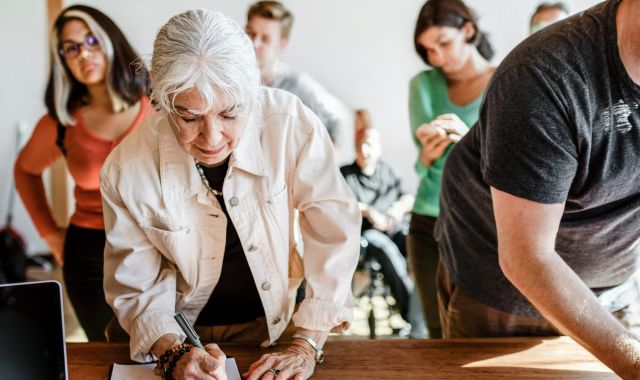Learning from the Past to Re-code a Future for Democracy
If there were a word to describe the current political climate, it would be ‘change’: technological, geopolitical and socio-economic. The status quo is over, and politics is struggling to adapt. Democratic principles have been going through a stress test in the last decade. This has seen a weakening of state institutions, the criminalisation of dissent, the use of violence, threat and terror, a rise in the spread of misinformation, a comeback of charismatic authority and the cult of the leader, and an undermining of the rule of law.
It is against this background that the EPD Annual Conference 2025 gathered some of the most insightful minds on democracy and politics to take stock of the lessons learned from the past and gather ideas for rebooting democracy support together. Here are our main takeaways from the day.
Europe in flux
The Conference looked at three things that democracy supporters will closely monitor in the upcoming months: what the EU will do to create a more pro-democratic digital space, how Europe will protect democracy through the upcoming European Democracy Shield and the space for democracy in the upcoming EU Budget.
The impact of the digital sphere on democracy goes beyond election campaigns, it spans our everyday life as the top source of information and the main vehicle of disinformation and misinformation. The EU has the tools to deal with this via a set of regulations and laws but lacks a competitive digital sector to build new tools. Human rights principles and data protection were already integrated into digital policy with the GDPR in 2018, and key digital policy files such as the Digital Services Act, the AI Act and the Regulation on Political Advertising. These tools are the EU’s opportunity to ensure that the European digital space is truly democratic and free, allowing citizens to really choose the content they want to access and consume.
The new European Democracy Shield is designed to address some of the threats to democracy both online and offline, such as attacks on civic space, election integrity and media freedom. Following the money here is crucial. More capital needs to be shifted towards funding efforts addressing these threats. For a truly effective shield for democracy, this would be the first step to help ensure election integrity, safe election campaigns, transparency from big tech, a safe and enabling environment for journalists and civil society.
While investing capital is vital, defence and strategic external policy priorities cannot come at the expense of support for the values on which European politics is based. The situation outlined by the activists invited to share their stories (see below) at our conference is a clear demonstration of that. The EU budget represents only a minimum part of EU Member States’ budgets and cannot in any way substitute national budget efforts but it is a key tool for supporting European interests.
The political will to defend democracy as the most important value for the EU, internally and externally, will be crucial in the discussions ahead of the 2028-2034 framework. Right now, the dominant narrative is putting the EU’s interests first – given the global crises – and giving a big priority to competitiveness and defence. Yet, democracy is a vital interest for Europe: it supports economic growth, security and peace and must be prioritised as such. The time for pressure is now; the political will needs to come now.
The world in flux
In the last decade, people have protested more than at any other point in human history, in ways that were spontaneous, leaderless, digitally coordinated, and horizontally constructed. However, while this recipe has proven effective at getting people onto the streets, a democratic happy ending is not automatic.
The Annual Conference brought to Brussels three democracy activists from Georgia, Serbia and Cuba, currently representing three among the most ignited contexts where people are demanding change. In Georgia, Mariam Kaulashvili-Southwell led a movement of over 200,000 members protesting against the foreign agent law, continuing to inspire resistance, despite severe repression targeting opposition leaders, journalists and civil society. Milica Kostin is among the Serbians who are protesting to demand government accountability in the aftermath of the Novi Sad station canopy collapse in November 2024, participating in a movement that has created solidarity between Serbian people no matter how they identify religiously or nationally. Victor Dueñas explained how Cuba is an example of a place where civic space is not just restricted but also criminalised, even with long prison sentences now supported by a new penal code.
Our conference made clear that much remains to be done to ensure that everyone is brought to the table in decision-making across politics and policy space. Women’s political representation in national parliaments rose from 11 per cent in 1995 to over 27.2 per cent, but systematic barriers to women’s political inclusion are still obvious. This is particularly apparent when it comes to increased violence and intimidation – with our guests underscoring that aggression has become more prominent in politics in recent years particularly as gender issues are used in so called ‘culture-wars’.
When it comes to youth inclusion in political spaces, the situation is not much better. Young people have been widely recognised as a force for positive change, and the importance of their equal participation in society has been the focus of significant global agendas over the past two decades. However, a persistent narrative blames young people themselves, rather than exclusionary institutions, for a lack of participation, representation and inclusion. On the contrary, research shows that they are not disengaged or disinterested, but often face insurmountable barriers.
Change and flexibility
In light of these constant changes, how should we re-imagine democracy support, and what are the opportunities to look out for? If there is another word that can go hand in hand with change, it would be “flexibility”. The response to such changes should not be about defending everything in the current system, but rather changing it, building shared infrastructure, building bridges to make policy participatory and doing more on the ground to collect knowledge.
#EPDAC2025’s most memorable moments
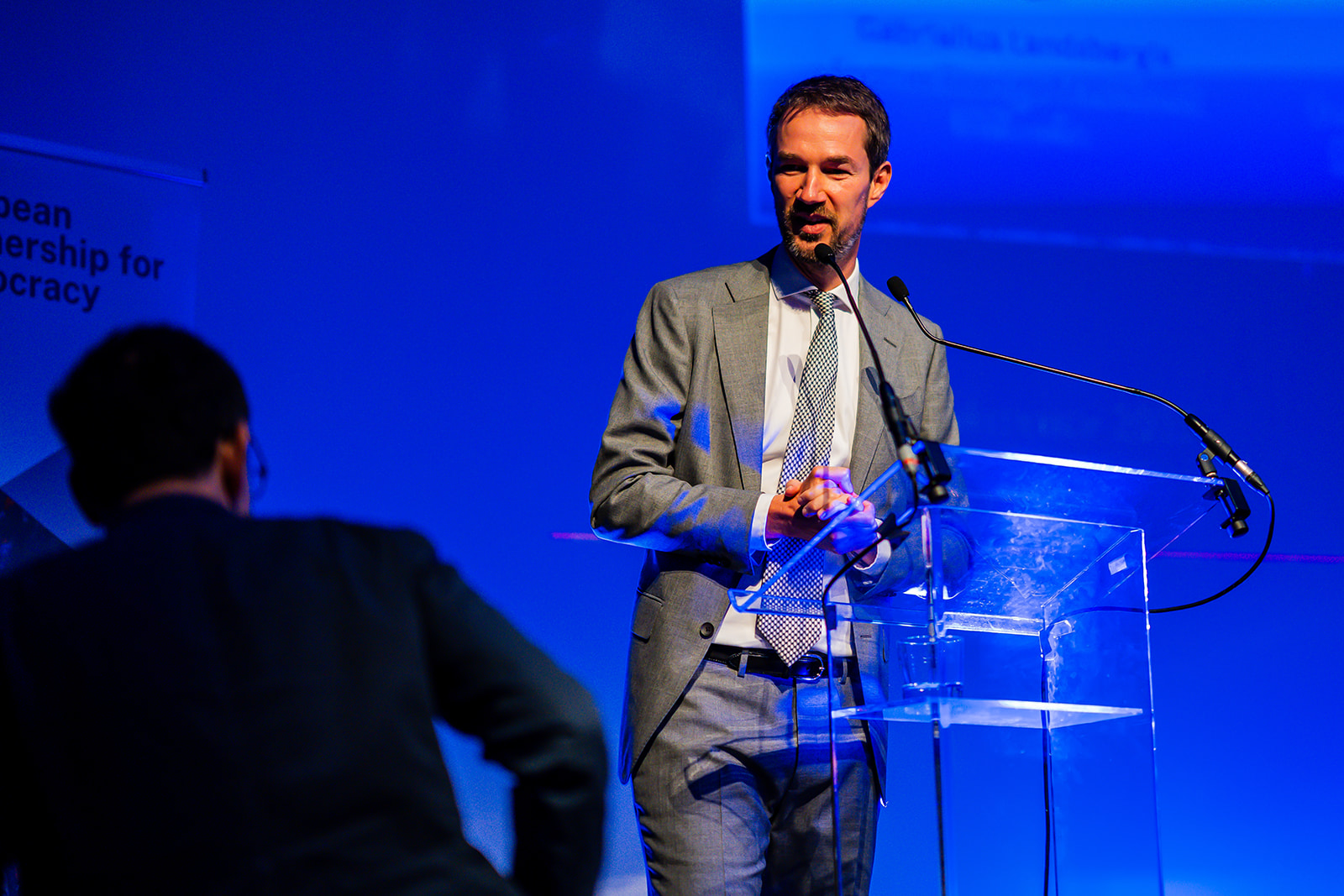
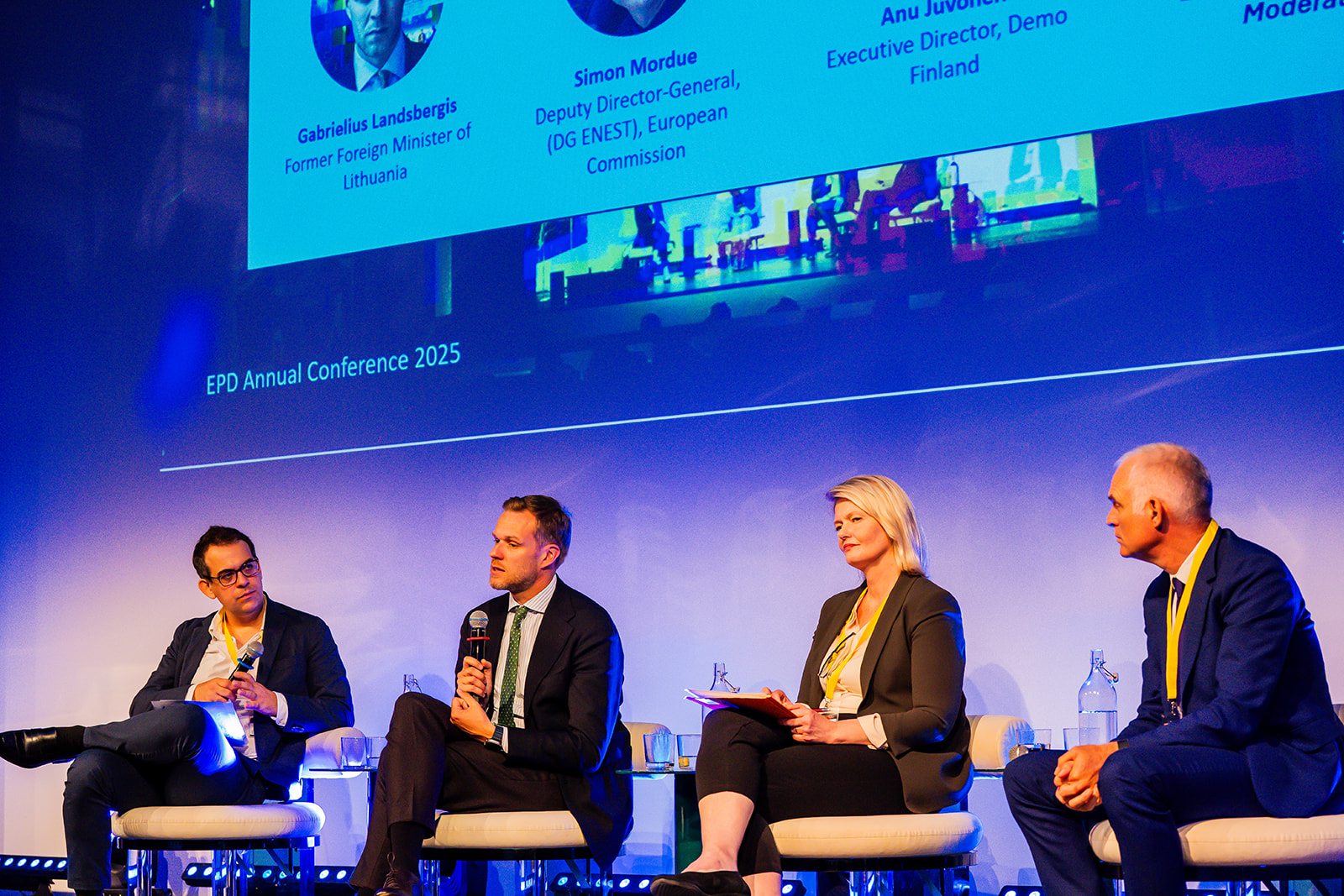


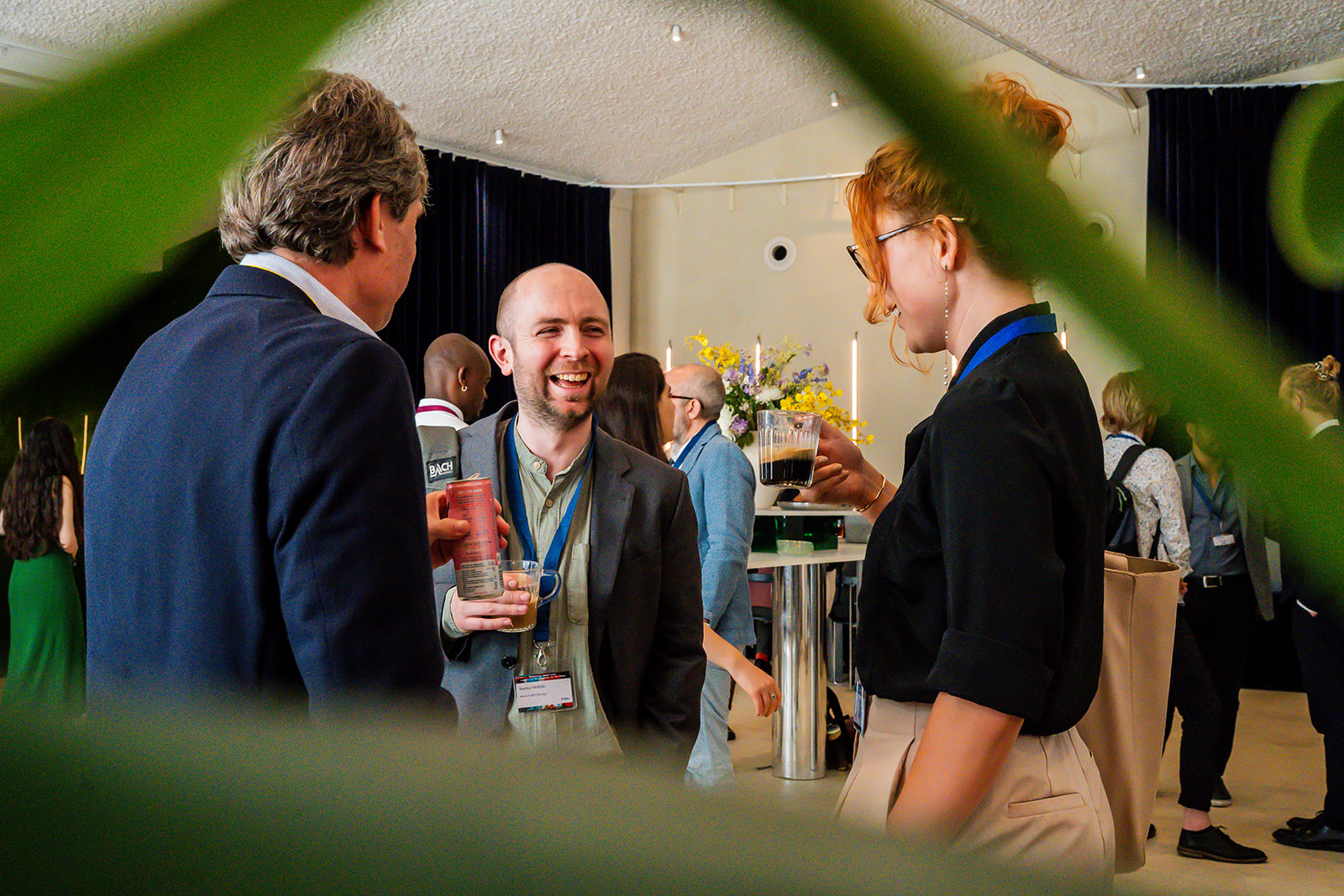
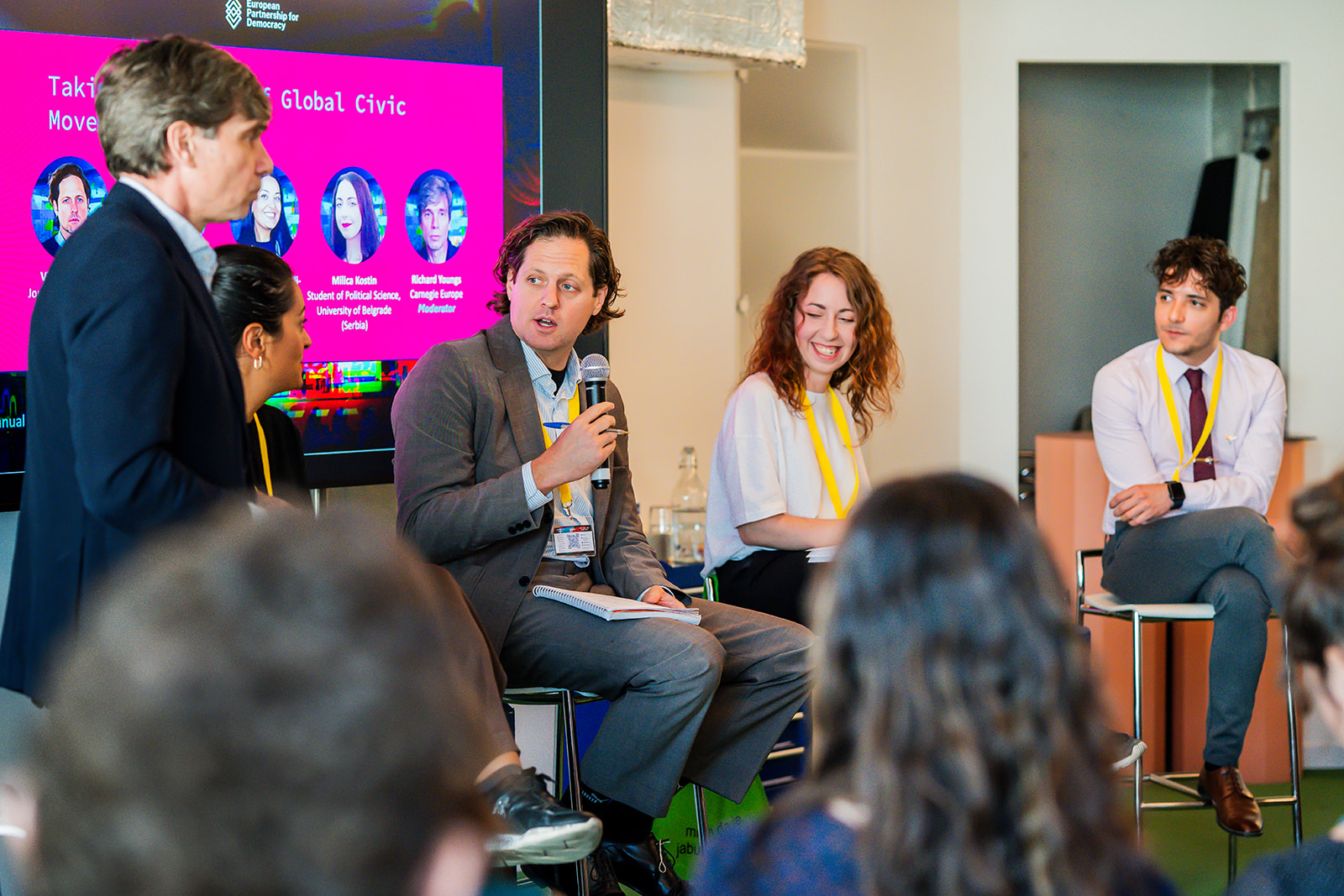
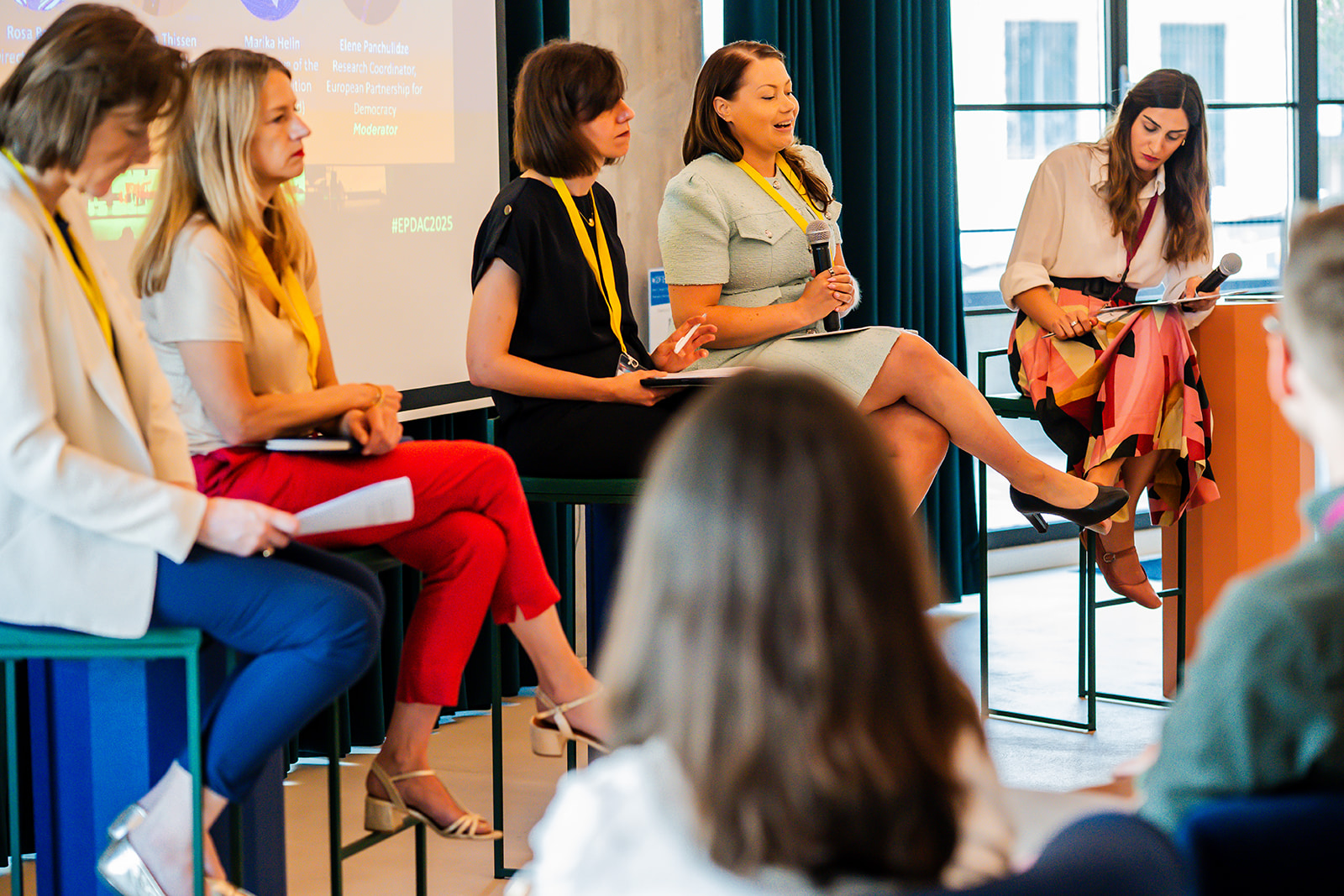
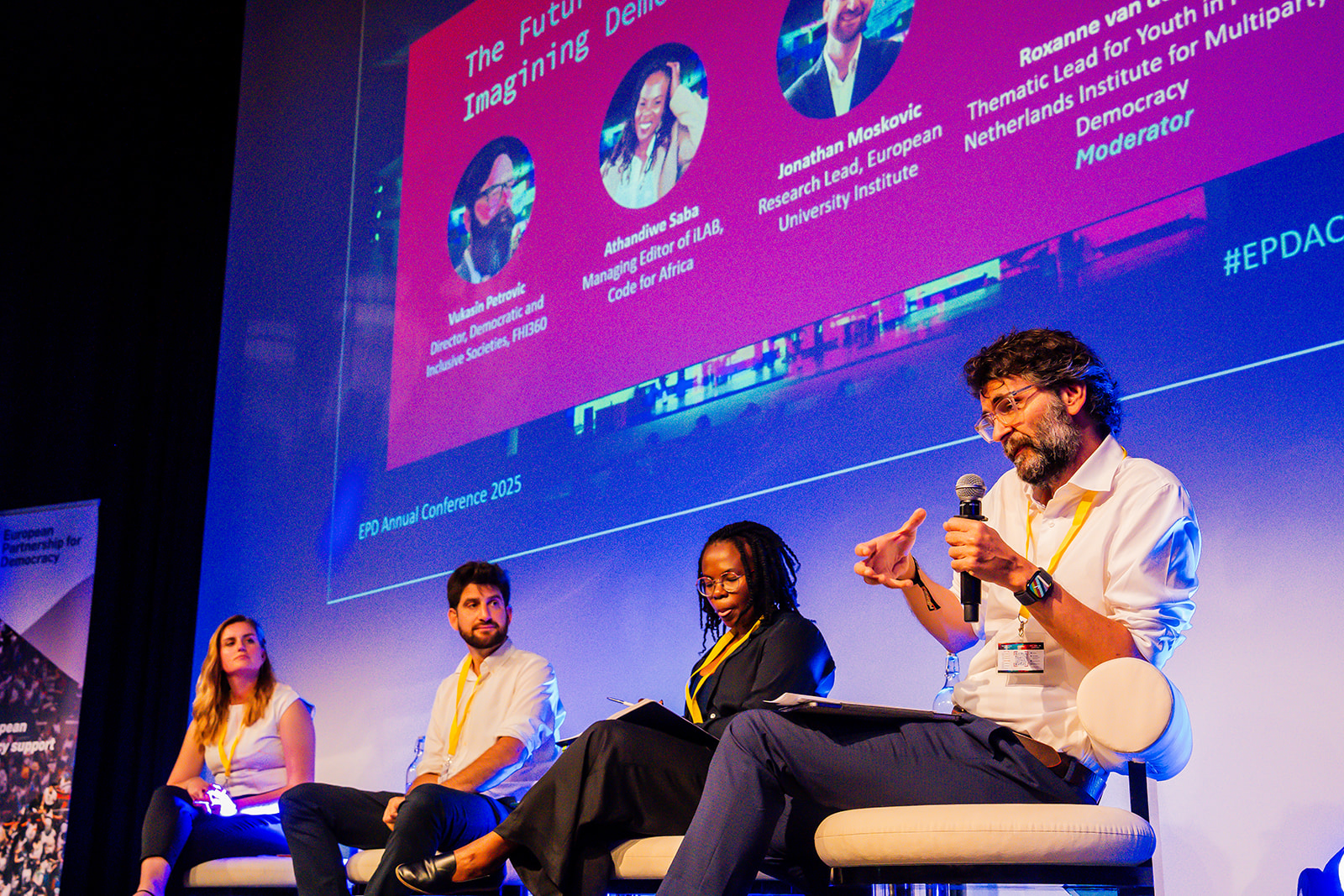
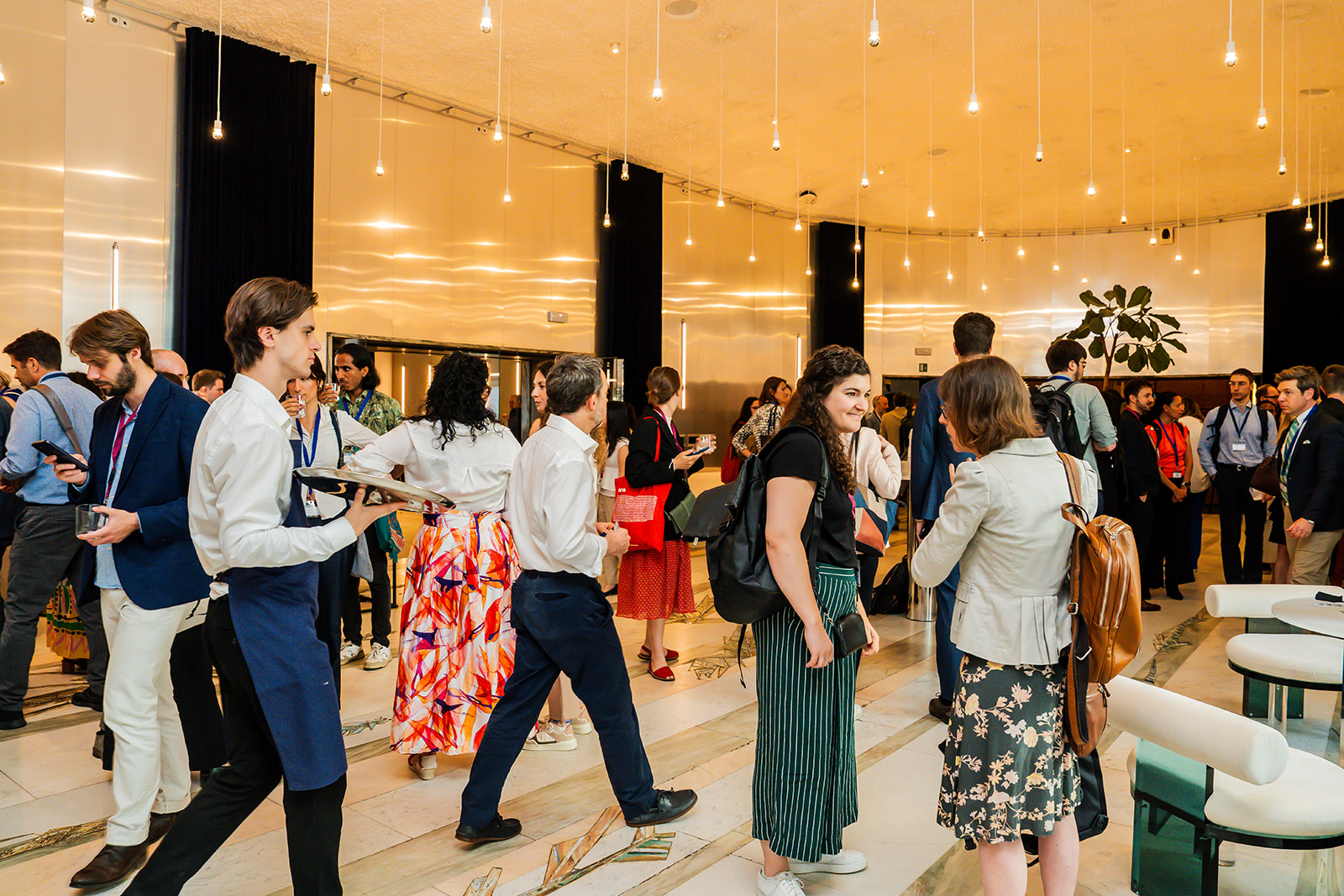
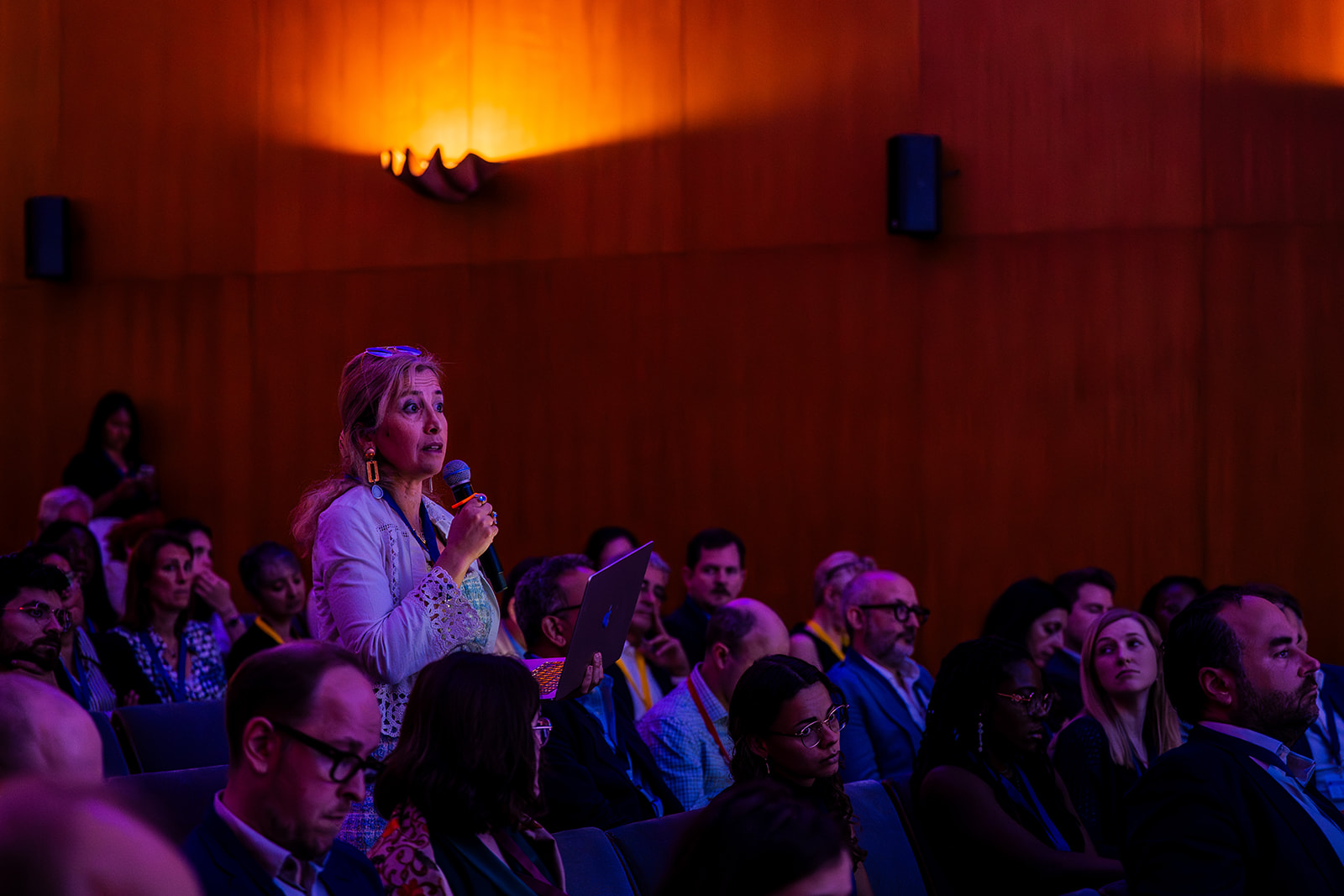
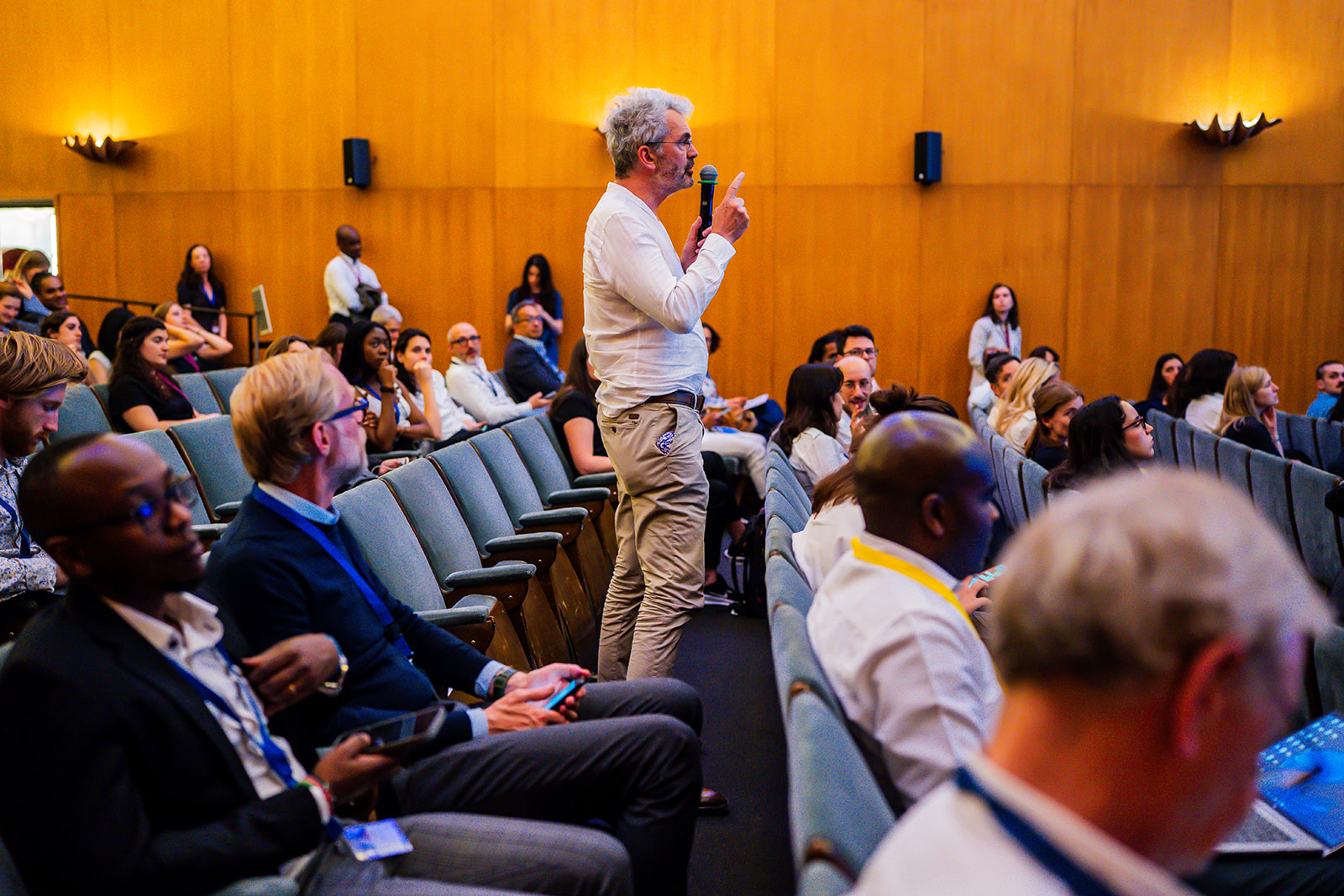
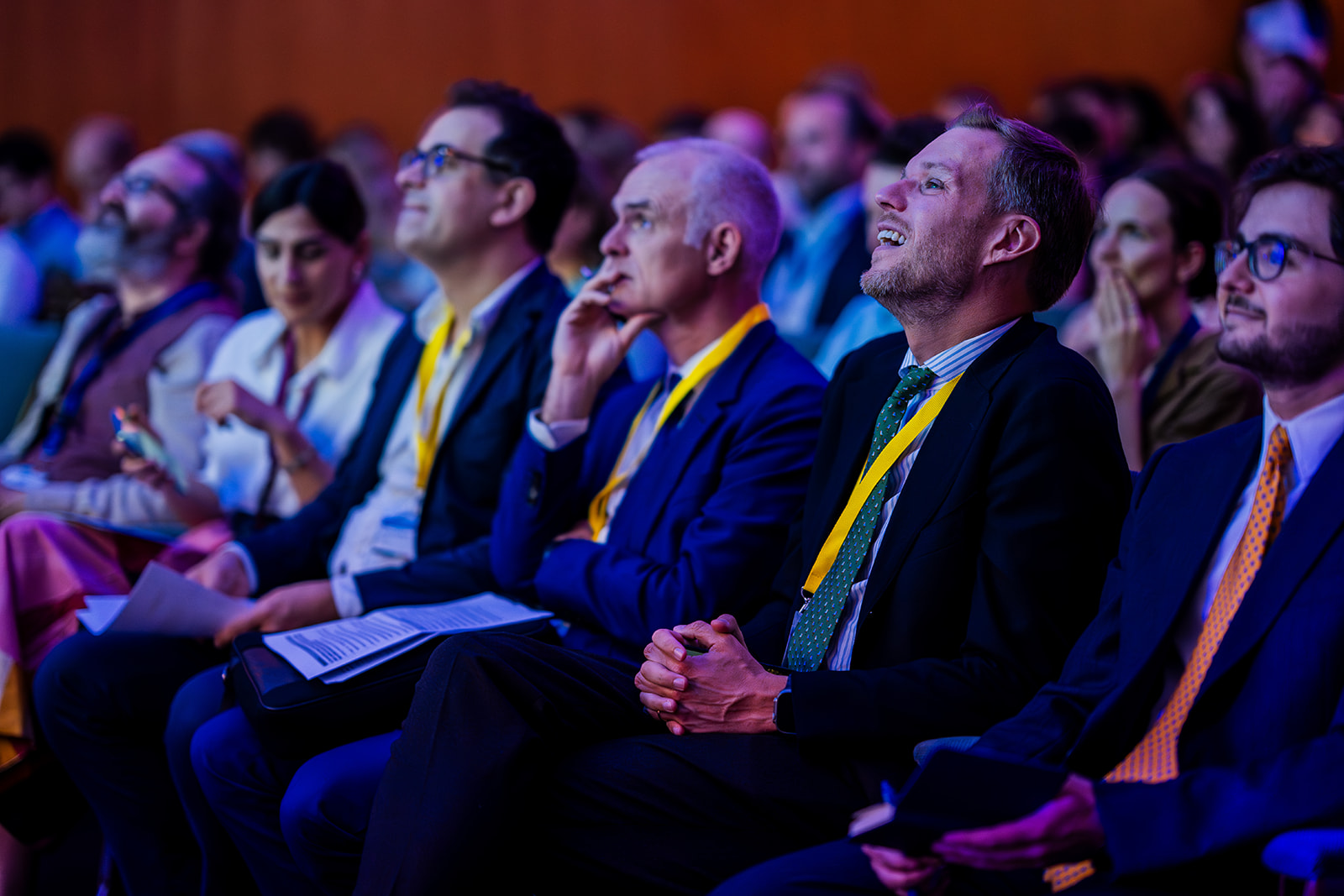
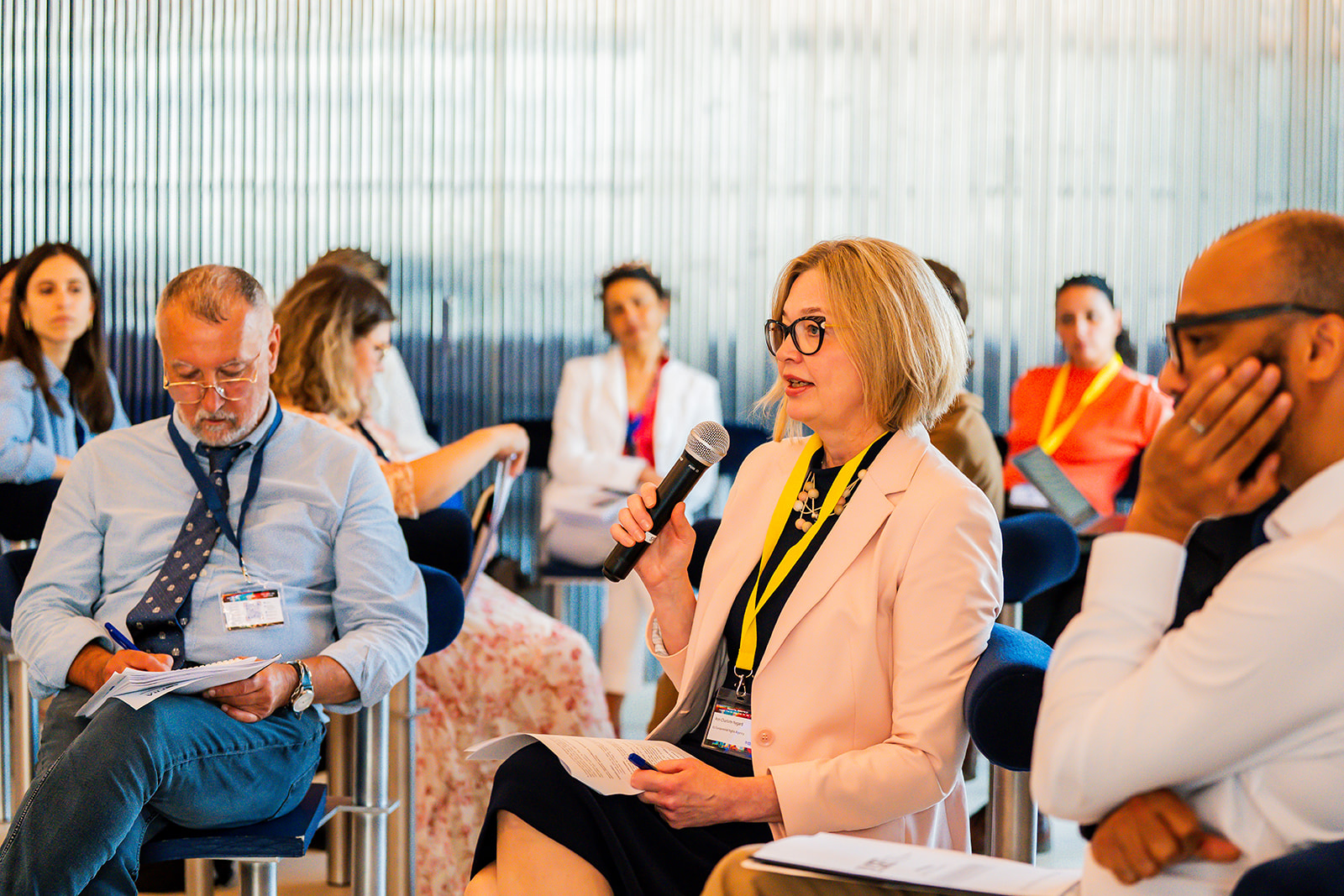
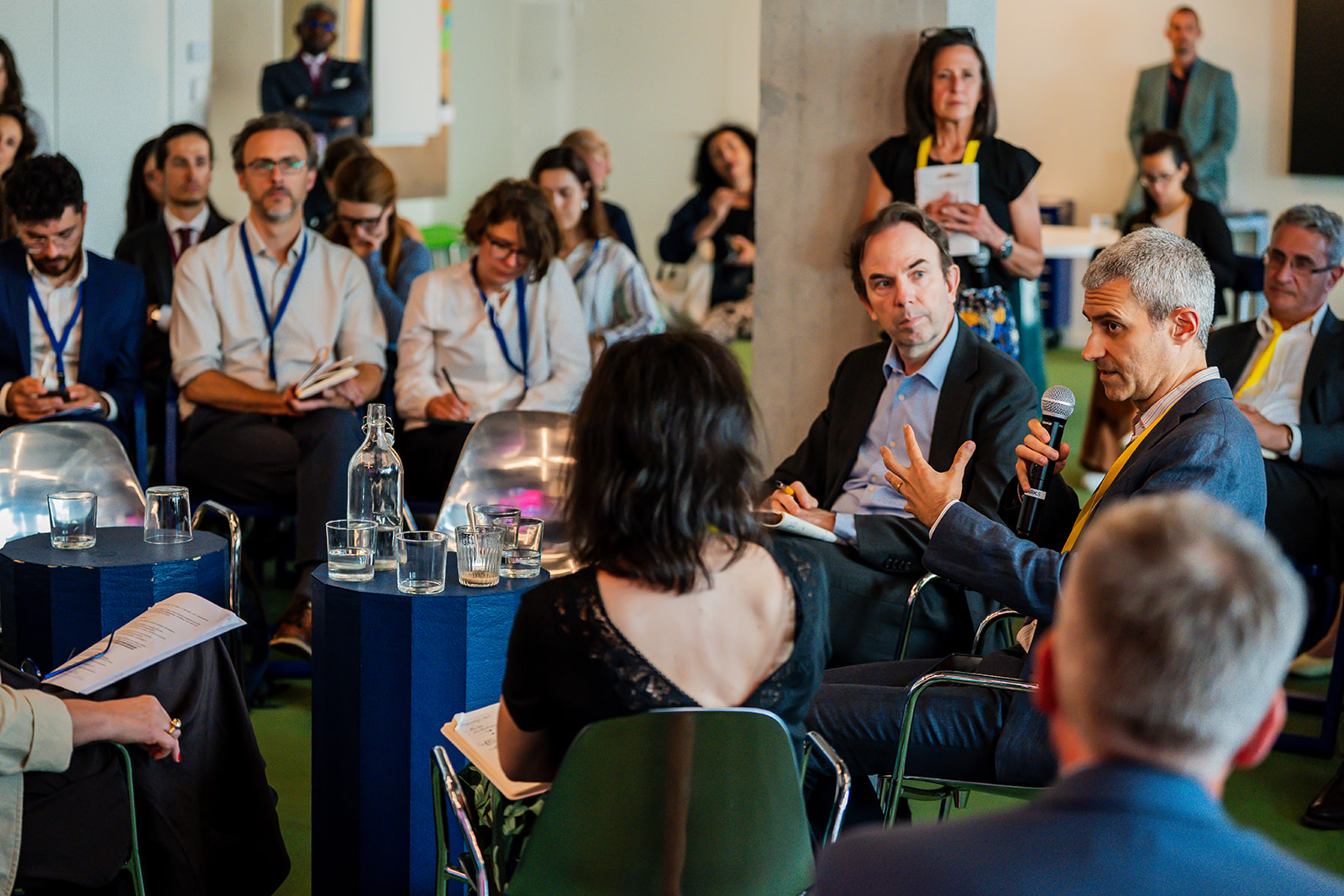
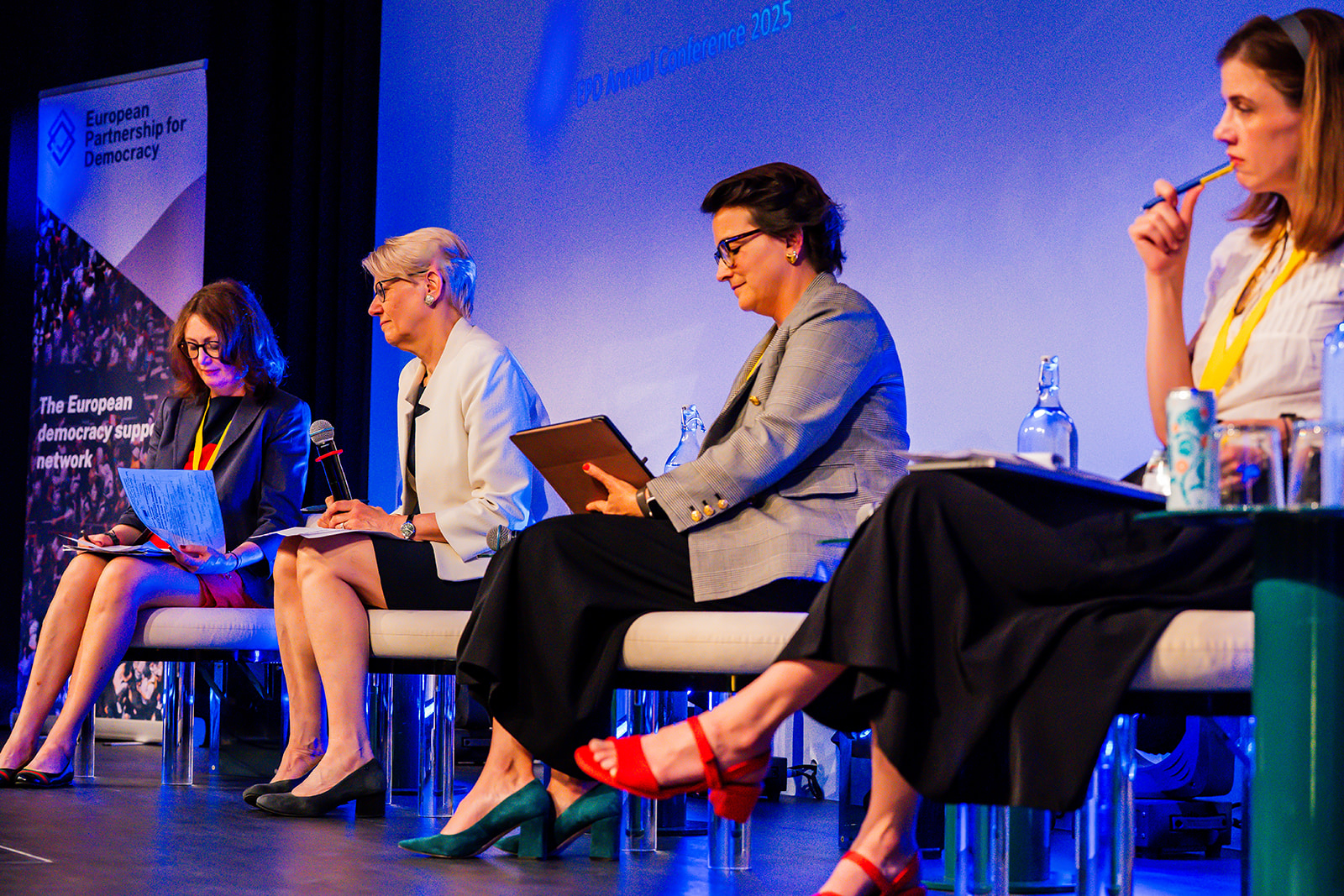
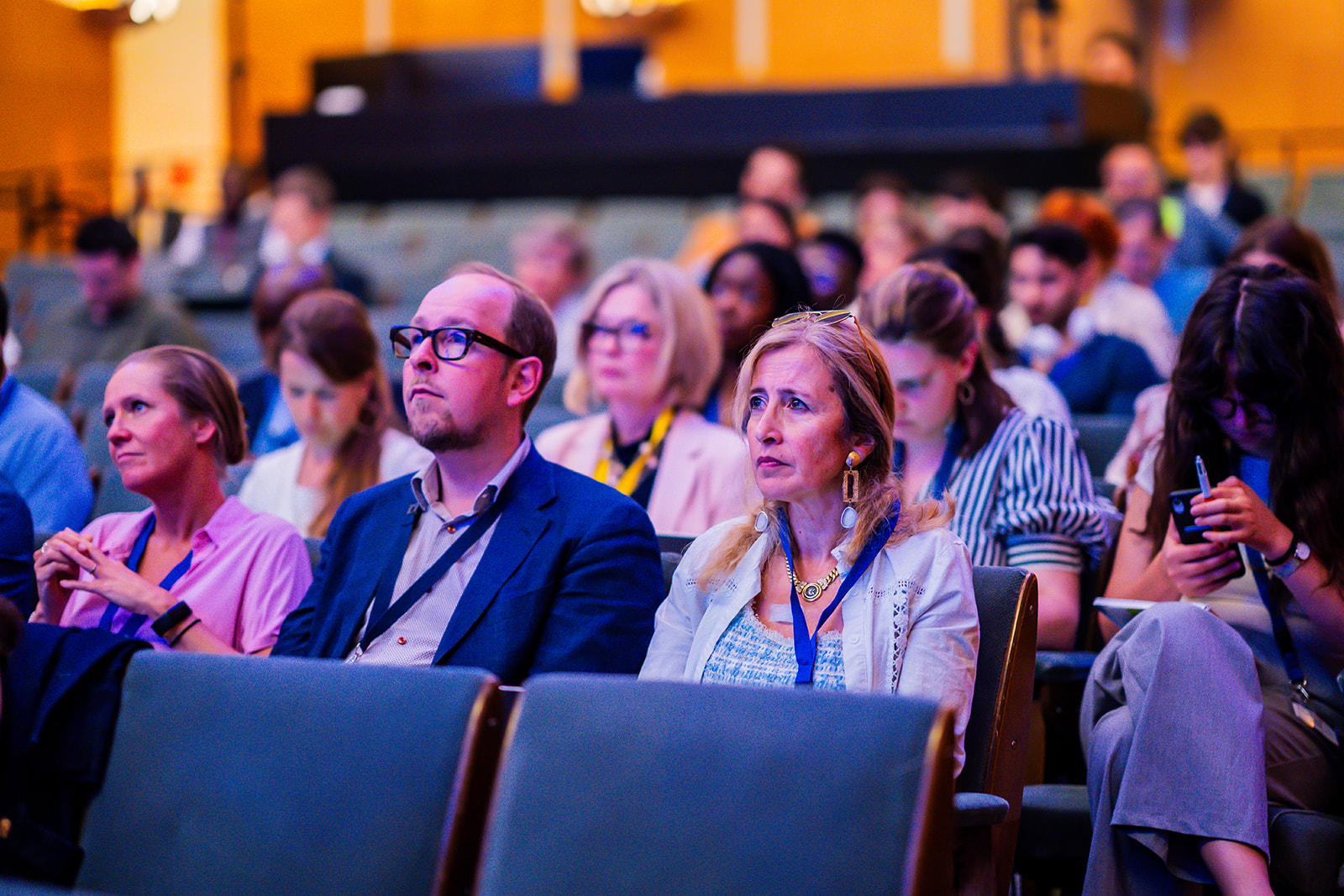
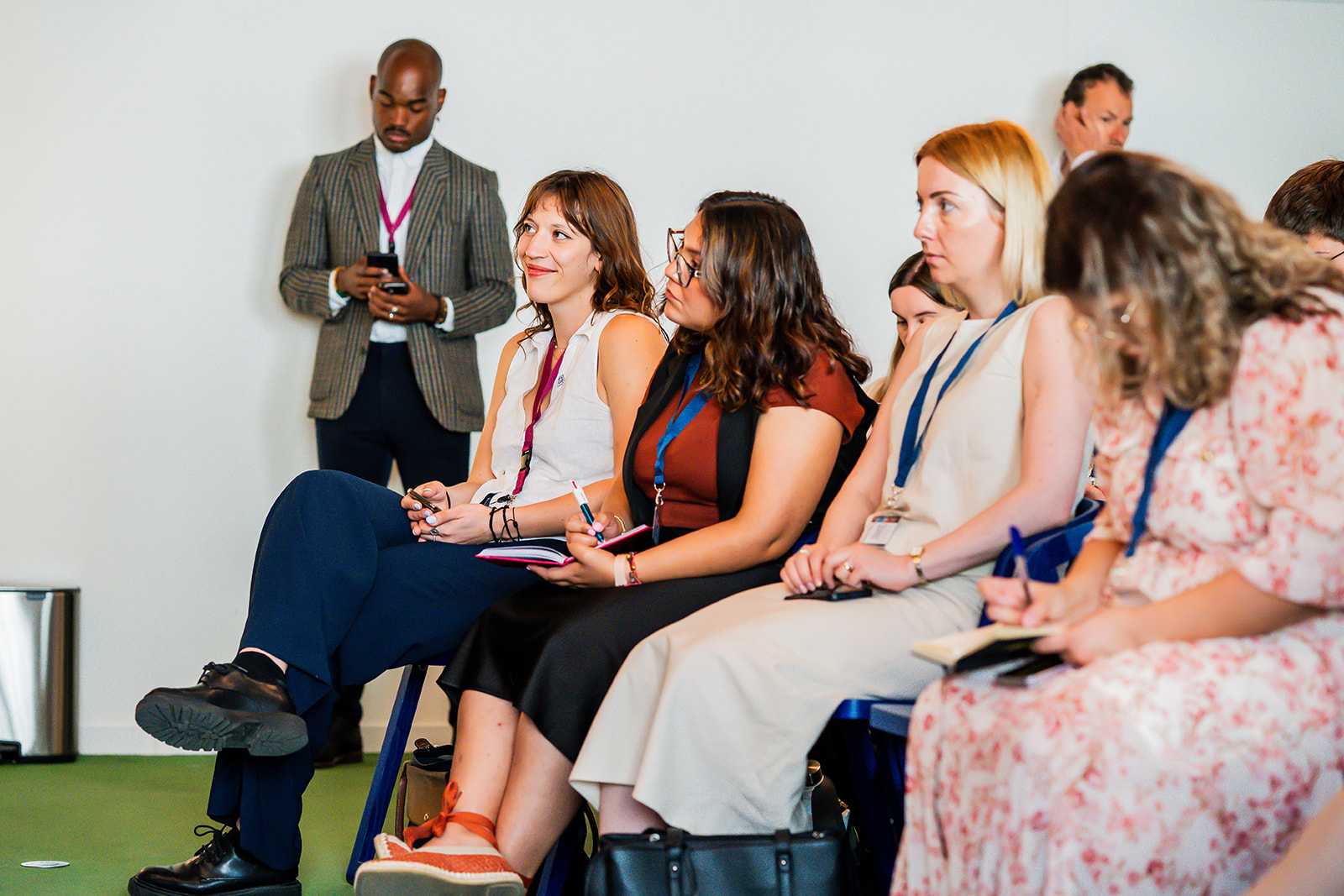
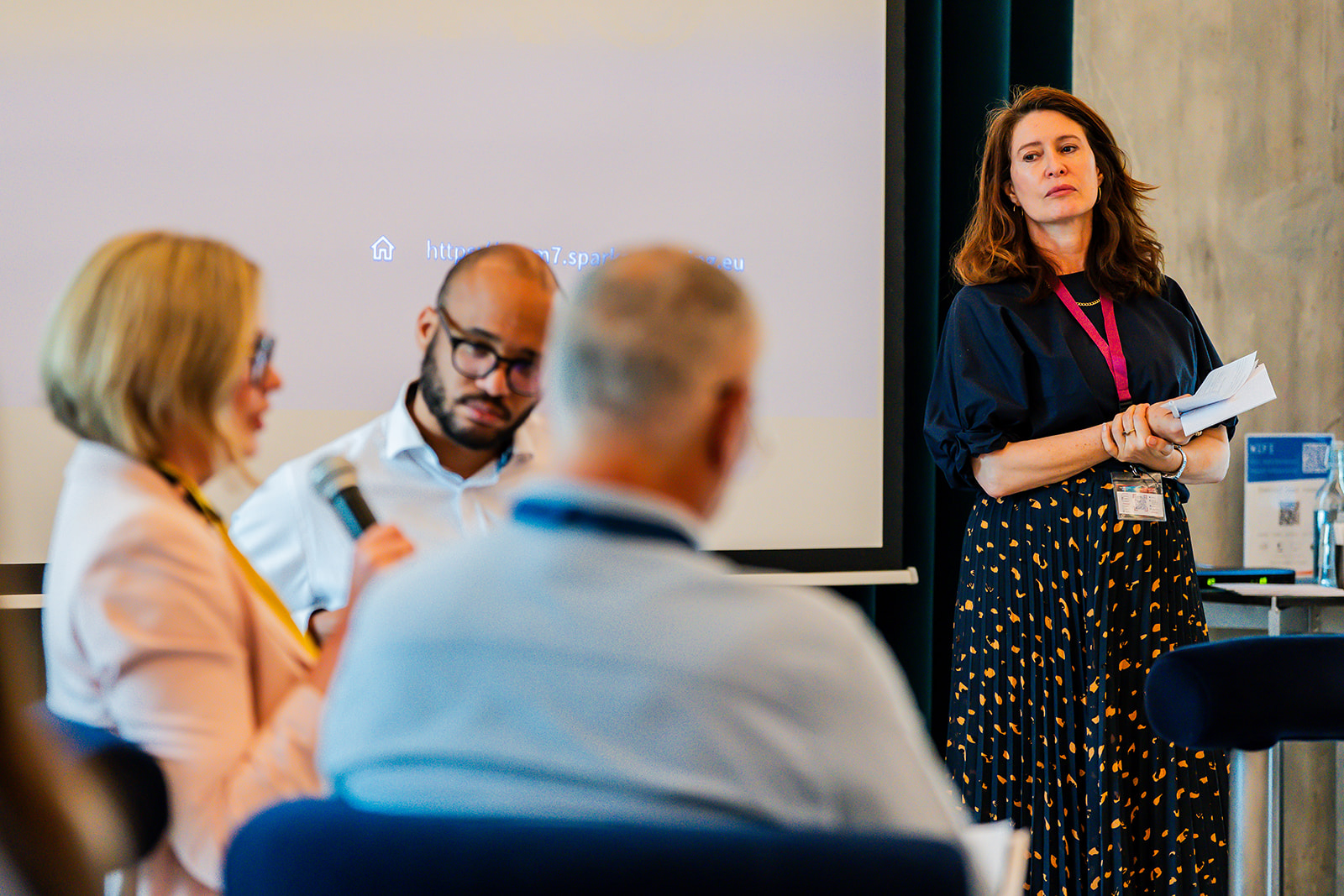

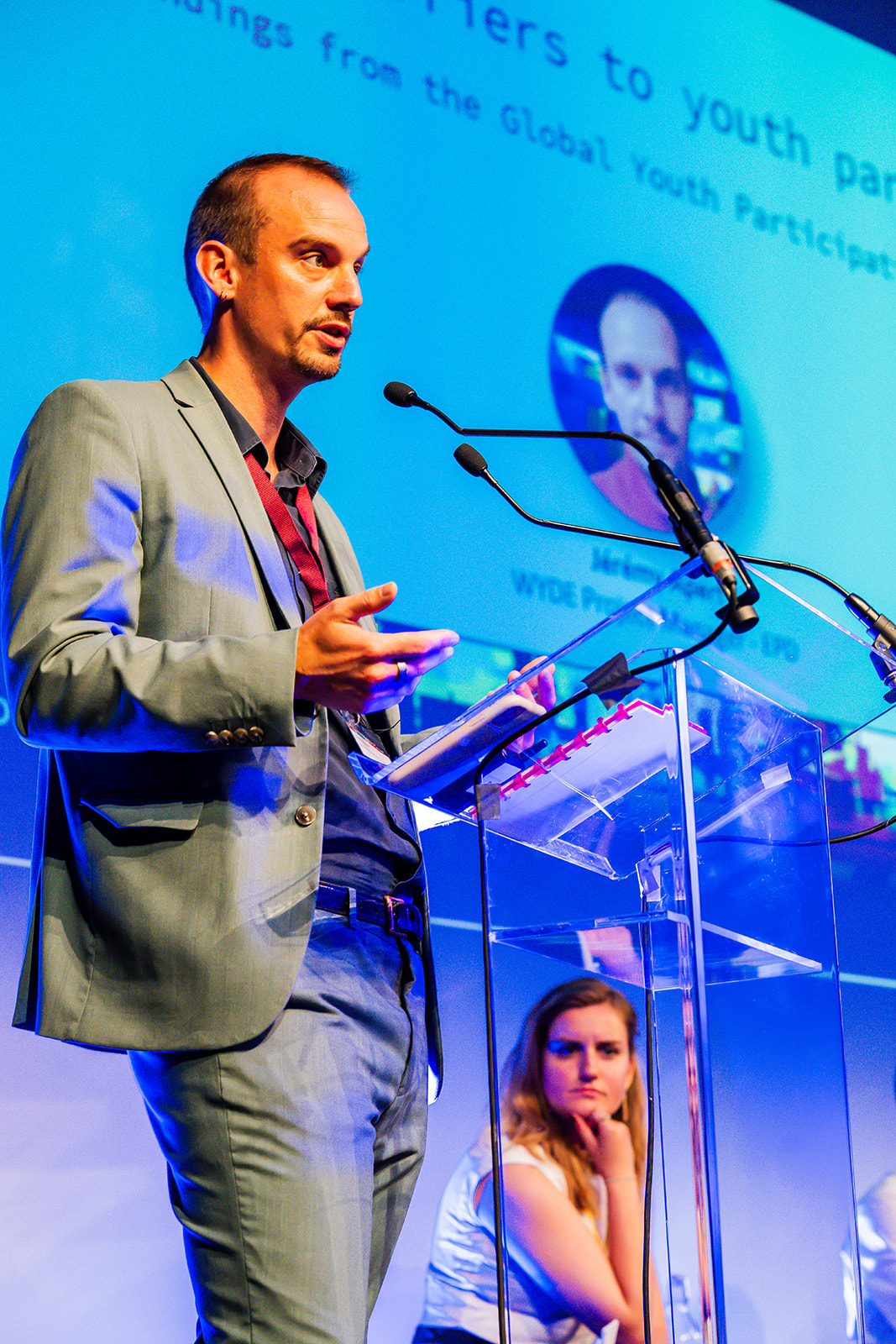
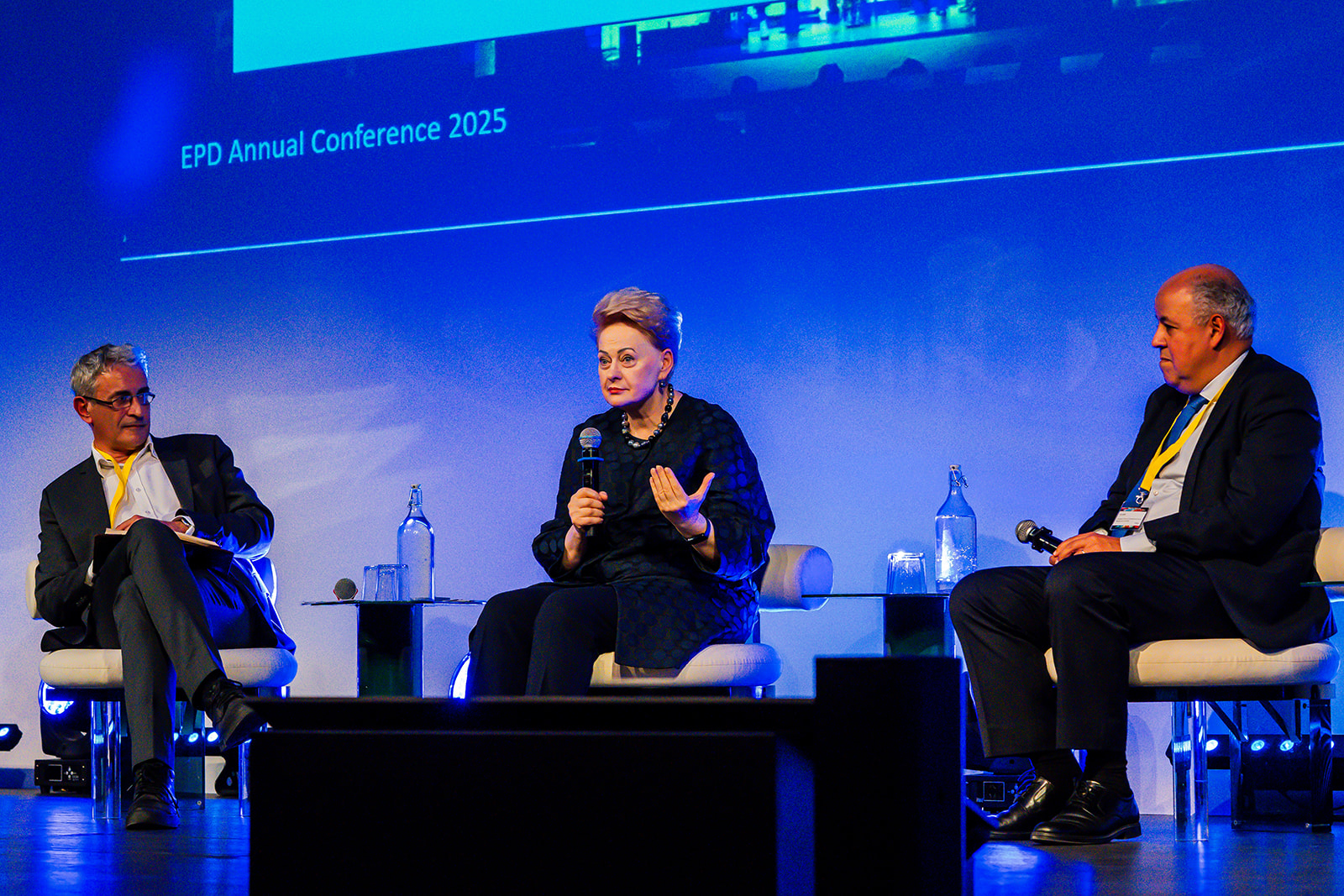
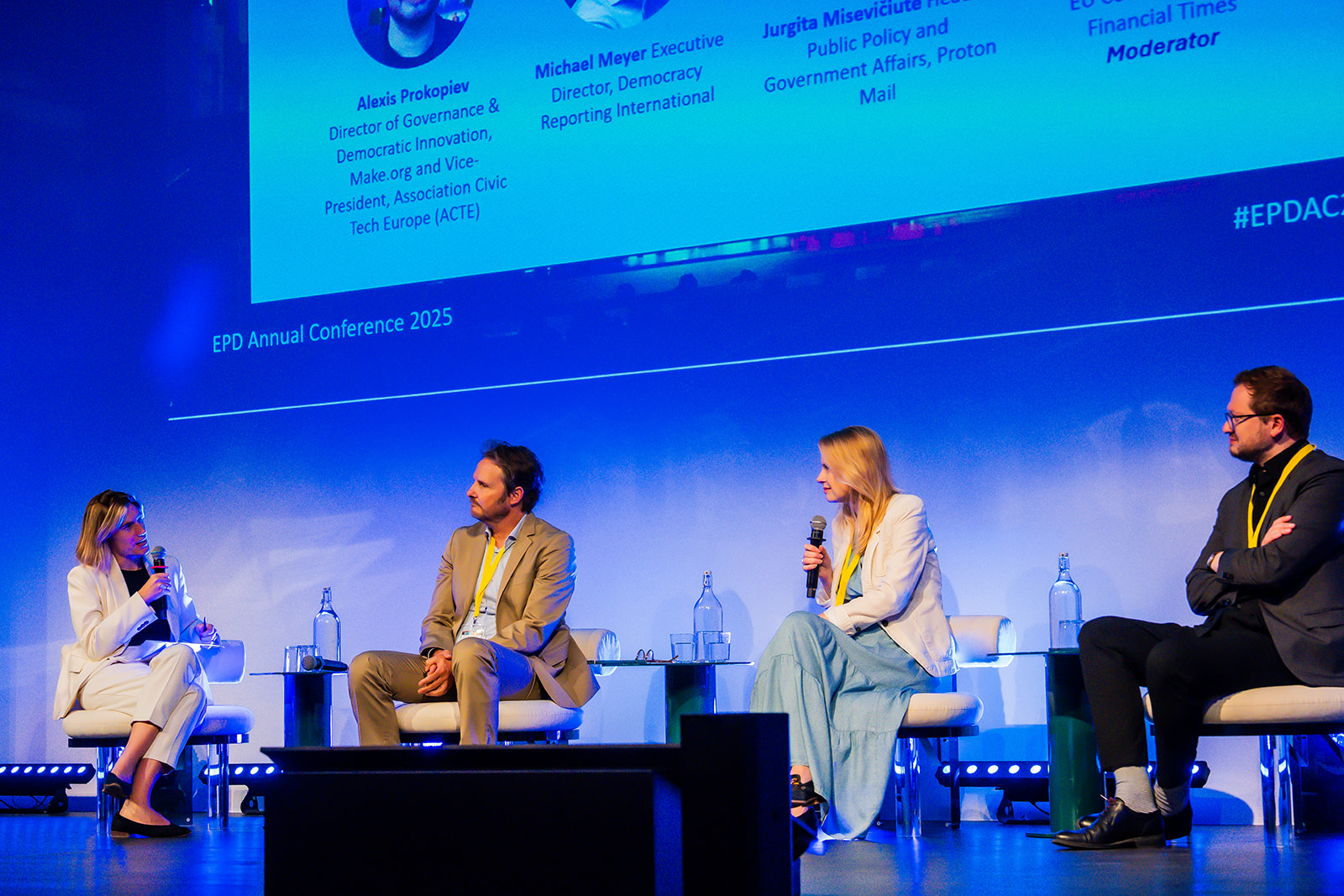
© Daphne Matthys


